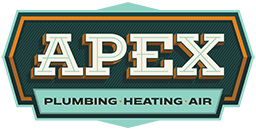
The quality of the air we breathe is vital for our health. It may be a surprise for you to discover that your indoor air quality is often worse than the air outdoors. When the quality of your indoor air is poor, it can lead to a range of health problems for your family. Symptoms can include headaches, asthma, allergies, fatigue, and other health conditions.
According to the United States Environmental Protection Agency (EPA), the average American spends about 90% of their time indoors, where pollutants concentrate twice to five times greater than outdoors. Those more susceptible to the negative health effects of airborne pollutants, such as the elderly or people with allergies and asthma, spend even more time indoors.
Ensuring your indoor air quality must be a priority if you want to stay healthy. Let's review four signs indicating poor air quality and what solutions you can implement to improve it.
1. Unpleasant Odors
An obvious sign that your indoor air quality is poor is noticing unpleasant odors. If you smell something unpleasant inside your home, it could occur for different reasons. Foul odors can develop for a variety of reasons, such as:
- Mold
- Mildew
- Pet odors
- Cooking
- Plumbing issues
- A faulty HVAC system
Although air purifiers and air fresheners help remove odors from the air, they don't provide a permanent solution. Masking odors is not a good option, especially if you use chemicals that can be harmful to your family and pets. This can actually worsen the quality of your indoor air and may lead to health issues.
It is normal to temporarily have foul odors inside your home. Still, when you notice that the odor is persistent or worsens, it's time to discover the underlying issue. Often, bad smells can come from the plumbing system, such as clogged drains, a failing sump pump, or mold buildup from leaky pipes. Our qualified plumbers can inspect your plumbing system to find the culprit.
2. Your Family Experiences Respiratory Problems
If your family starts to experience respiratory issues, or if they worsen, it may indicate that your home has poor air quality. Symptoms may include:
- Congestion
- Wheezing
- Coughing
- Shortness of breath
- Asthma
- Allergies
Be sure to use an air purifier designed to help with allergies and HVAC filters that remove pollutants from the air inside your home. In addition, you must keep your home well-ventilated even in the summertime. You can achieve this by frequently opening windows and installing exhaust fans in the kitchen and bathrooms, which pull moisture and contaminants from the indoor air.
If your family starts to experience frequent colds, a stuffy nose, headaches, or sneezing, you may want to have your air quality checked. At the same time, never ignore symptoms of respiratory conditions. If left unexamined by a medical doctor, these minor symptoms can develop into serious health problems.
The concentrations of indoor air pollutants have risen in recent decades. New energy-efficient building structures often lack sufficient ventilation to promote healthy air exchange. Also, we have increased the use of synthetic components inside our homes, such as furnishings, building materials, pesticides, household cleaners, and personal care products. Keeping up with HVAC maintenance, including cleaning the duct work, may help.
3. Excessively High or Low Humidity Inside Your Home
Another sign of poor indoor air quality is when you notice humidity levels rising in your home. High humidity can decrease your air quality and cause dangerous health conditions. Dust mites, a common allergy trigger, thrive in warm, moist environments and can live in furnishings, bedding, carpets, and other places around the home. Control high humidity levels to prevent the growth of bacteria and mold and help control dust mites.
If the humidity is too low, it can cause dryness inside your residence, leading to dry skin and respiratory symptoms. Also, air dryness can damage your furnishings, indoor plants, and household items.
A quality, well-maintained HVAC system is essential to maintain proper humidity. Modern systems can humidify or dehumidify indoor air. Optimally, humidity should be set between 30 and 50 percent. An HVAC professional can guide you on the proper setting you should keep in your home.
If you notice an odor of mildew or mold, check for water damage. If you see a source of moisture, such as a damp wall or leaky pipes, address this problem immediately. Our plumbers can help detect hidden leaks.
4. Excessive Dust and Allergens
Finally, another sign of poor indoor air is the presence of dust and allergens. Dust and allergens such as dust mites, pollen, and pet dander can accumulate inside your home for various reasons, including a dirty HVAC filter. In addition, cockroaches, cigarette smoke, mold, and other sources can trigger allergies and other respiratory problems
If you notice you or your family experiencing an increase in runny noses, sneezing, hay fever, difficulty breathing, wheezing, or asthma, you'll want to take measures to improve the air in your home. Other allergy symptoms include:
- Itchy, red or watery eyes
- Facial pressure and pain
- Cough
- Postnasal drip
- Swollen, blue-colored skin under your eyes
To avoid these health conditions, maintain a regular cleaning routine that addresses dust mites and other airborne pollutants. Change your HVAC filter as your HVAC professional indicates, and make sure you're using a filter with a high MERV rating.
A HEPA filter removes at least 99.97% of airborne particles at least 0.3 microns or larger. They are commonly seen in commercial settings such as laboratories and hospitals but can also be installed in homes. Only some HVAC systems are designed for these highly-dense HEPA filters.
Replacing or cleaning your HVAC filters every 1 to 3 months is generally recommended. This depends on the kind of filter and the level of air contaminants inside your home. Some modern HVAC systems can remove small particles from the air and are much more energy efficient. If you have an older HVAC system, you may want to consider installing an upgrade. You'll also want to check for leaks in the air ducts that allow dust and other particulates to enter.
A Trusted HVAC Company Can Help You Improve Your Indoor Air Quality
Just like calling a plumber to help you maintain your plumbing, working with a trusted HVAC company is crucial to help you maintain air quality. Our experienced team at Apex Plumbing, Heating, and Air Pros provides solutions for homes experiencing poor indoor air.
Our company proudly provides a 5-star satisfaction guarantee on heating, cooling, and plumbing services. Our customers continue to give us excellent reviews and referrals because we are committed to following the industry's highest standards. We hire only highly skilled and trained professionals who can address poor indoor air quality.
Call Apex Plumbing, Heating, and Air Pros today for quality HVAC services in the greater Columbus, OH area.





